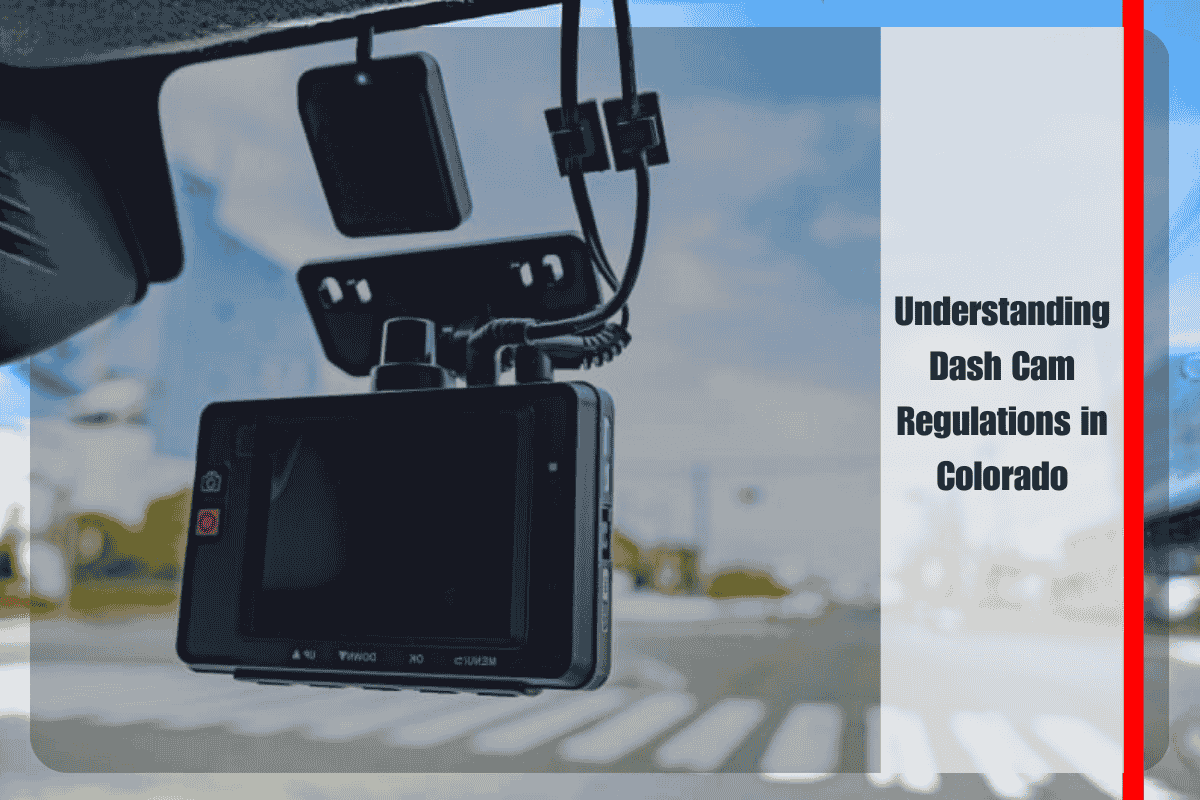Dash cams are legal in Colorado and increasingly common among drivers for both personal protection and evidence gathering. However, there are important regulations and considerations you must follow to remain compliant with state law. Colorado law does not explicitly prohibit dash cams, but it does regulate devices on or near the windshield to ensure nothing obstructs the driver’s clear view of the road. The most accepted method is mounting the device behind the rearview mirror or on the dashboard, provided it does not impede, block, or create glare that could interfere with visibility. Reflective or metallic dash cams are discouraged, as they may dazzle the driver or others on the road, which is a legal violation.
In localities such as Denver, municipal ordinances specifically mandate that a driver’s vision through all windows must be “normal and unobstructed.” Mounting a dash cam in any way that could be considered as blocking or impeding your line of sight is prohibited. Across the state, you cannot lawfully use mounts, casings, or adhesives that could hinder your ability to see the road fully or create distractions through shine or position. It’s also recommended to stay aware of the rules if driving in other states, as laws can differ significantly.
Regarding privacy and audio recording, Colorado is a one-party consent state. This means only one individual involved in the recorded conversation—such as the driver—needs to consent to audio recording. Generally, dash cam video and audio are permissible on public roads, but recording private conversations without consent could present legal issues. If your dash cam records audio and passengers are present, it is advisable to notify them to avoid any potential privacy complaints.
Dash cam footage is commonly used as evidence in Colorado car accident cases, insurance claims, and even personal injury litigation. For footage to be admissible in court, it must be relevant (demonstrating details directly related to the event), authentic (not tampered with or manipulated), and reliable (clear enough quality for analysis). The footage must also comply with all privacy and placement laws. Judges, insurance companies, and forensic experts often rely on dash cam recordings as neutral evidence to determine fault, road conditions, and the behavior of involved parties. If footage is requested by law enforcement, police generally require a subpoena for you to surrender your dash cam or its recordings, especially if you are not voluntarily handing over evidence. Willfully deleting footage relevant to an ongoing investigation may be considered a legal offense.
In commercial or rideshare vehicles, dash cams may even be required by some companies or cooperatives. However, even in these contexts, operators must ensure compliance with all placement and privacy guidelines. If driving near federal or border areas, additional restrictions may apply, and permission from authorities to record on government property is sometimes necessary.
Dash cams are fully legal in Colorado, but how and where you mount your camera is strictly regulated. Mount your device to avoid blocking your view, comply with all traffic and privacy laws, and check for any stricter local ordinances. When in doubt, mounting your dash cam just behind the rearview mirror is widely considered safe and compliant. Always consult a legal professional if you have questions about the use or admissibility of dash cam footage, especially after an incident.
Sources
[1] https://www.expertmarket.com/dash-cams/dash-cam-laws-by-state
[2] https://www.mintzlawfirm.com/what-are-colorados-dash-cam-laws/
[3] https://facit.ai/insights/dash-cam-laws-by-state
[4] https://www.gpsinsight.com/blog/are-dash-cameras-legal-in-commercial-vehicles/
[5] https://www.mydenveraccidentlawfirm.com/news-resources/what-you-need-to-know-before-using-a-dashcam-in-colorado/












